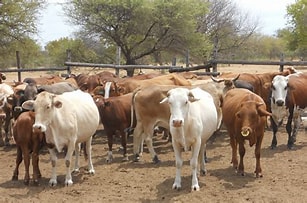ISAVAT Trains 156 Frontline Veterinarians On Disease Surveillance
The Applied Veterinary Epidemiology Training (ISAVET) programme says it has trained no fewer than 156 frontline veterinarians on disease surveillance.
Prof. Hannatu Lombin, ISAVET National Coordinator, spoke at the Graduation Ceremony of FAO- Emergency Centre for Transboundary Animal Diseases (ECTAD)-ISAVET capacity building cohort 5 in Abuja.
He said the training would be narrative of disease surveillance in Nigeria.
Lombin said the training was aimed at enhancing the capacity of frontline veterinarians in epidemiologic surveillance, field investigation, professional ethics and emergency preparedness and response.
She said with the 30 newly trained professionals, Nigeria had so far successfully trained five cohorts of ISAVET making a total of 156 trained Frontline Veterinarians.
“ISAVET is gradually building a critical mass of frontline Veterinarians that are currently changing the narratives of disease surveillance in Nigeria.’’
According to her, the cohort demonstrates unique resilience and patience, despite the challenges faced during classroom training in Jos.
She said the cohort had learnt the ropes of veterinary field epidemiology when the world was struggling to cope with the impact of emerging and re-emerging pandemics and epidemics.
Lombin implored the beneficiaries to use the opportunity to make a difference, adding the exposure heralded the beginning of a new paradigm shift in disease surveillance and reporting in their places of work.
She urged them to use the experience to develop habits and work ethics and culture that would positively influence the veterinary profession.
According to her, the veterinary profession is counting on you to make giant strides.
“Remember the saying ‘Nobody outmatches an epidemiologist,’’’ she said.
On his part, Mr Koffyr Kouacou, FAO Country Representative ad interim, said the organisation had been working with the Nigeria Centre for Diseases Control and Prevention (NCDC), particularly through the One Health Approach.
Kouacou, who was represented by Dr Otto Muhinda, FAO ECTAD Country Team Leader, said FAO would continue to work with partners in the control of diseases transmittable from Animal to Human and Environment and vice-versa.
The event marked the end of the four months intensive training that started in June and ended in September–comprising of one month didactic classroom exercise and three months in the field.
NAN/Oyenike Oyeniyi


Comments are closed.